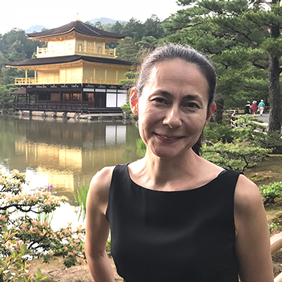2023 JFIPP Research Fellow - Kathryn Christine Ibata-Arens

Kathryn Christine Ibata-Arens
Vincent de Paul Professor, Political Science, DePaul University
[Project Title]
Innovations in Japan’s Health Diplomacy in the Indo-Pacific
Project Summary
In an era where health security has emerged as a significant global challenge, Japan's pioneering efforts in the Indo-Pacific, especially through its innovative and entrepreneurial health diplomacy, stand out. Addressing the pressing health vulnerabilities of the region, from infectious diseases to chronic conditions, I argue that Japan has embraced a distinctive "doux smart power diplomacy (DSPD)" approach. Transcending the traditional paradigms of soft, hard, and smart power Japan's DSPD ensures the infusion of limited resources into solutions that not only address immediate health needs but also fortify regional health resilience against emerging threats. This policy framework prioritizes the cultivation of transnational humanitarian networks for enhanced efficacy and a meaningful return on the investment of resources. In other words, Japan has pursued a smarter version of smart power diplomacy. This study proposes to explain how DSPD improving health security has been designed and how it has worked in action, on the ground in Indo-Pacific countries, through the lens of Japan in India.
These initiatives, including public-private partnerships (PPP), have not only fostered transnational humanitarian networks but also empowered India and other countries with innovative health solutions. Considering the shared challenges faced by countries of the Indo-Pacific region, especially post the Covid-19 pandemic, Japan’s diplomatic efforts in health are an important subject for policy-relevant research. As such, via policy analysis and geo-strategic mappings of state-led PPPs this research aims to offer an historic-institutional perspective on Japan's health diplomacy now and in the future.
In addition to case study analysis, the project blends qualitative interviews, fieldwork, and data collection for mapping connections in transnational humanitarian networks, reflecting Japan’s role as a formidable player in the support of human health and health security in the Indo-Pacific and beyond. For example, through the dual lens of Japan and India, the mixed-method approach offers a comprehensive analysis, referencing such health diplomacy strategies as China’s, while identifying potential implications for other (e.g., Pacific Island) countries. It aims to position Japan's 21st-century efforts for improving health across borders as a transformative benchmark for best practice in Asia and further, having worldwide import.
To ensure the findings reach the widest audience, plans include dissemination through in person and online fora comprised of public talks, open access policy briefs, teaching materials, and scholarly publication.
- What We Do Top
- Arts and Cultural Exchange [Culture]
- Japanese-Language Education Overseas [Language]
- Japanese-Language Education Overseas [Language] Top
- Learn Japanese-language
- Teach Japanese-language
- Take Japanese-Language Test
- Know about Japanese-language education abroad
- The Japanese-Language Institute, Urawa
- The Japanese-Language Institute, Kansai
- Japanese-Language Programs for Foreign Specified Skilled Worker Candidates
- Japanese Language Education for Japanese Children Resident Overseas and for the Descendants of Migrants
- Archives
- Japanese Studies and Global Partnerships [Dialogue]
- JF digital collection
- Other Programs / Programs to Commemorate Exchange Year
- Awards and Prizes
- Publications
